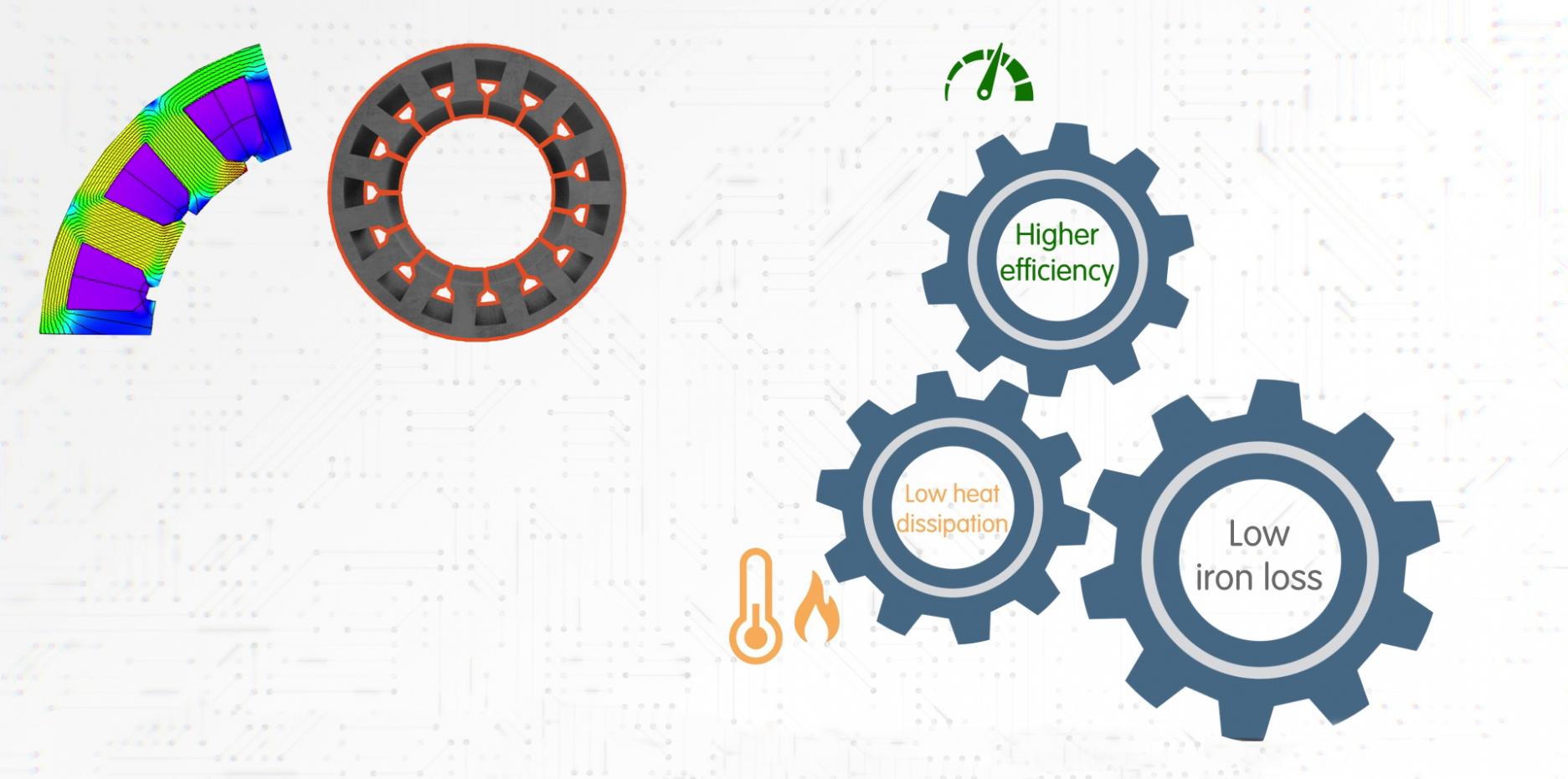Products
Product pages available in
EN - DE - FR - ES
Sustainability
News, events and stories

Opinion piece by Cristina de Lucas, CMO of ArcelorMittal Europe – Flat Product’s Electrical Steels

Demand for electrical steels, a key component for electric vehicles and other renewable energy generators, is growing rapidly as the world transitions into cleaner, more efficient forms of energy generation and mobility. Nowhere is this truer than in the European Union (EU). As local countries change policies, manufacturers expect support and guidance to explore this new world, and the general population demands superior offers that combine high performance and low environmental impact.
This is where ArcelorMittal plays a fundamental role.
Vehicle electrification is being pushed by both legislation and consumer demand. Globally, around 40 million electric vehicles (BEV+PHEV) are expected to be sold between 2021 and 2028. By 2028, Europe (including the UK) is expected to account for over 8 million EV sales annually. With each EV engine requiring between 30 and 100 kilograms of electrical steels (depending on the vehicle segment and powertrain architecture), the rapid growth in EV production represents a huge business opportunity for ArcelorMittal’s high grade electrical steels.

ArcelorMittal's electrical steel: the energising material
Electrical steel powers the future of sustainable vehicles
The electrification of mobility is increasing rapidly in Europe. Forecasts indicate that, by 2030, more than half of all new car registrations in the region will be for rechargeable vehicles. Demand has largely been driven by EU CO2 emission regulations, but the growing environmental awareness of consumers, and their positive driving experiences with these cars, are also playing a significant role. And with electric vehicles lowering emissions from 15% (Mild Hybrid) up to 100% (Battery Electric Vehicle), each additional electric motor is a significant step closer to carbon-neutral vehicles on the road.
Rising demand for electric vehicles means a rising demand for electric motors, and in turn electrical steels to maximise their efficiency. Motors made with specialized electrical steel, such as the one produced in our European ArcelorMittal plants, balance high polarization, high strength, and low losses, creating superior energy efficiency.

Higher motor efficiency is achieved by using electrical steels with lower iron losses in a wide frequency range
Local electrical steel manufacturing lowers negative impacts, raises benefits
Europe’s goal of reducing emissions to restore environmental balance will stumble if we rely on electrical steels, batteries, and electric motors that are developed in regions where less attention is paid to the environmental impact of their production.
If Europe does not have industrial autonomy in this area, it cannot fully control emissions across the complete supply chain. This hampers the impact of targets that aim to transition the region into a greener and more circular economy. In the current political climate, there is also a danger that national trade laws will limit access to imports of electrical steels, batteries, and motors. As we have seen in the recent past, some countries will prioritise their own markets first to gain any competitive advantage.
Transportation is an area where local production helps to mitigate supply chain risks. A shortage of shipping containers is already pushing up the delivery costs – and availability – of goods that come from the other side of the world. Shipping batteries, electric motors, and electrical steels by air to Europe is not sustainable either. If these products are manufactured locally they can be easily transported by using road and rail modes – many of which will be electrified soon. And promoting the advantages of these products being “Made in Europe” will have a positive impact on employment and society in general.
ArcelorMittal’s iCARe® family includes solutions for all types of electrical machines
ArcelorMittal ready to meet European demand
ArcelorMittal is already producing the high-quality electrical steels European industry needs. We have also made significant investments to help us extend our product offer and provide even more efficient solutions for clean energy generators and e-mobility traction motors. ArcelorMittal is keen to participate in the transition to a greener and more circular local economy. We are dedicated to our continuous investment in Europe to meet the soaring demand for high-quality electrical steels.






